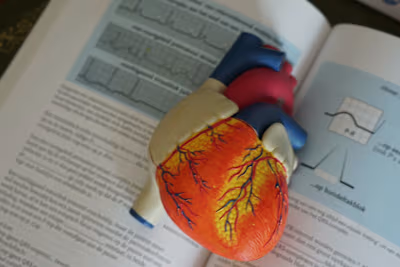Diabetes-A Global Epidemic: Types, Risk Factors, and Complicati…

Diabetes-A Global Epidemic: Types, Risk Factors, and Complications
·
4 min read
·
Aug 1, 2023
Diabetes — a disease directly responsible for 1.5 million deaths in a year and is associated with another 2.2 million deaths in some form. A disease that is about to become the 7th leading cause of death. This disease is a major cause of blindness, kidney failure, heart attack, and lower limb amputation. It is high time that people realize its severity so that they can prevent it or control it in case they are suffering from diabetes already.

WHAT IS DIABETES?
Commonly diabetes is known as a condition in which blood glucose level or blood sugar level is too high. More accurately it is a weakness or failure in the mechanism of glucose metabolism by the Insulin hormone which is responsible for its storage. Diabetes can occur due to inadequate insulin production or its ineffectiveness on Insulin receptors. Because glucose is not properly stored, it stays in the blood and results in high blood sugar.
According to ADA guidelines, these are the normal blood sugar level, level in IGT(Impaired Glucose Tolerance), and Blood sugar level in Diabetes mellitus -
Fasting blood sugar (Empty stomach)-
Normal — <100 mg/dl
IGT — 100–125 mg/dl
Diabetes Mellitus → >125 mg/dl
2-hour Postprandial blood sugar (After meal)-
Normal — <140 mg/dl
IGT — 140–200 mg/dl
Diabetes Mellitus → >200 mg/dl
It is often seen that diabetic patient is at risk of low blood sugar (Hypoglycemia) as well, in which sugar level drops below 70 mg/dl. Patients who are taking Insulin experience it because of the insulin reaction, or insulin shock. Patients are advised to take 15–20 grams of glucose as soon as possible in this condition.
WHAT ARE THE RISK FACTORS FOR DIABETES?
There are different types of diabetes, therefore risk factors of respective types are also different.
According to WHO’s Diabetes Global Report — The exact causes of type 1 diabetes are unknown. It is generally a result of complex interactions between genes and environmental factors. Type 1 diabetes occurs in children and adolescents.
Type 2 diabetes risk factors are genetic as well as metabolic. Overweight and obesity are the strongest risk factors for type 2 diabetes. A family history of diabetes, previous gestational diabetes, unhealthy diet, physical inactivity, and smoking are also significant contributors.
Gestational diabetes risk factors include age, overweight or obesity, family history of diabetes, excessive weight gain during pregnancy, etc.
TYPES OF DIABETES
Three major types of diabetes Mellitus can be seen in the population. These are-
1. Type 1 diabetes
2. Type 2 diabetes
3. Gestational diabetes
1. Type 1 diabetes — Since type 1 diabetes is primarily diagnosed in children and young adults, it is also known as juvenile diabetes or childhood-onset diabetes. As it was previously mentioned — the cause of type 1 diabetes is unknown and we have very fewer data available on this particular type of diabetes however it has been seen in many cases that the patient has a previous history of some kind of infection. It leads some doctors and scientists to the conclusion that infection can cause insulitis (inflammation of insulin-producing Beta cells in the pancreas) which may result in permanent destruction of beta cells. Still, we can’t say for sure because of less data availability.
These patient’s beta cells are destroyed so they can’t produce sufficient amounts of insulin due to which they are in constant need of insulin injections. These patients are dependent on insulin that’s why it is also known as Insulin Dependent Diabetes Mellitus.
Symptoms of type 1 diabetes are- constant hunger, thirst (polydipsia), excessive urination (polyuria), weight loss, vision changes, and fatigue. As we don’t know the cause so we can’t prevent it but it can be managed by insulin shots.
2. Type 2 diabetes — It occurs largely in adults and older people but it can occur at any age. Type 2 diabetes is the most common type of diabetes. According to CDC, type 2 diabetes accounts for about 90% to 95% of all diagnosed cases of diabetes.
Type 2 diabetes is a chronic disease (which occurs slowly). In this type, the body produces enough insulin but it can not be utilized due to the resistance of insulin receptors against insulin. It means even if insulin goes and attaches to the receptor, the receptor does not get stimulated and does not initiate its function, which in this case is glucose storage. It causes a high level of glucose in the blood. In this case, insulin shots are not going to work that’s why this type is also known as Non-Insulin Dependent Diabetes Mellitus.
The main factors that cause type 2 diabetes are obesity, physical inactivity, and unhealthy diet. Genetic association or family history of diabetes is also a significant factor.
Symptoms of type 2 diabetes are similar to those seen in type 1 diabetes but they take longer to appear in type 2 as compared to type 1. Lifestyle modification, exercise, weight loss, and a healthy diet can prevent type 2 diabetes. patients can be treated by medication and may require insulin as well.
3. Gestational diabetes — Gestational diabetes is a hyperglycemia condition during pregnancy. In this condition, the blood sugar level is usually not as high as seen in type 2 diabetes. Women with gestational diabetes are at comparatively high risk of complications during pregnancy as well as during delivery. Mother and child are at high risk of developing type 2 diabetes in the future.
Instead of symptoms gestational diabetes is diagnosed by prenatal screening.
Some less common types of diabetes can be seen in the population. For example, an inherited type of diabetes named Monogenic Diabetes, and cystic fibrosis-related diabetes, etc.
Sources:-
Like this project
Posted Mar 25, 2025
Diabetes — a disease directly responsible for 1.5 million deaths in a year and is associated with another 2.2 million deaths in some form. A disease that is ab…





